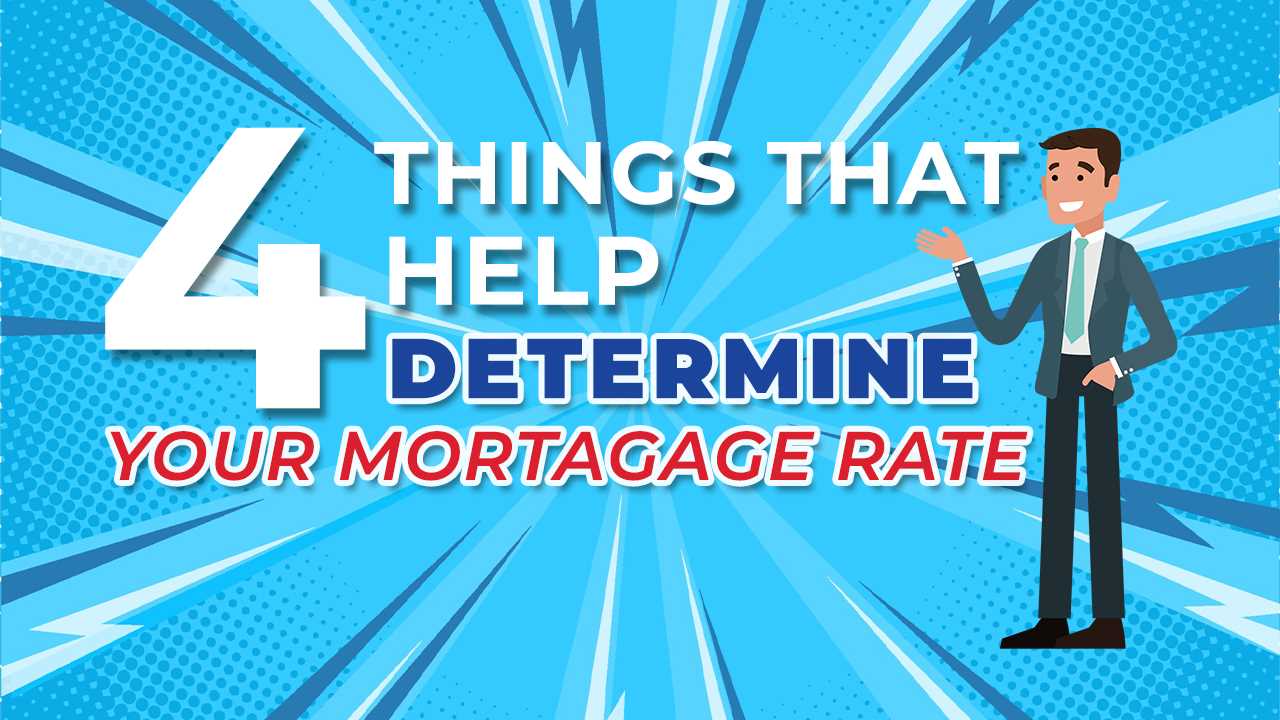Four Things That Help Determine Your Mortgage Rate

If you're seeking to purchase a home, you undoubtedly want to make sure that your mortgage has the lowest interest rate feasible. That was simpler to achieve in the previous two years since the housing market saw record-low mortgage rates, but this year, rates have sharply increased.
Here are a few things to pay attention to if you want to find a technique to counteract the increased rates of today and secure the lowest rate possible. Connect with a reputable lender for individualized guidance since approval chances can vary.
Your Credit Score
Your mortgage rate might be greatly influenced by your credit score. Freddie Mac clarifies:
“When you build and maintain strong credit, mortgage lenders have greater confidence when qualifying you for a mortgage because they see that you’ve paid back your loans as agreed and used your credit wisely. Strong credit also means your lender is more apt to approve you for a mortgage that has more favorable terms and a lower interest rate.”
Because of this, it's critical to keep a high credit score. Your dependable advisor can offer you professional guidance if you want to concentrate on raising your score.
Your Loan Type
There are numerous loan types available, each with unique terms for qualifying purchasers. According to the Consumer Financial Protection Bureau (CFPB)
“There are several broad categories of mortgage loans, such as conventional, FHA, USDA, and VA loans. Lenders decide which products to offer, and loan types have different eligibility requirements. Rates can be significantly different depending on what loan type you choose.”
Find out what's available in your region and what kinds of loans you might be eligible for while working with your real estate advisor.
Your Loan Term
The length of your loan should also be taken into account. You have options, just like with location and loan types. By Freddie Mac
“When choosing the right home loan for you, it’s important to consider the loan term, which is the length of time it will take you to repay your loan before you fully own your home. Your loan term will affect your interest rate, monthly payment, and the total amount of interest you will pay over the life of the loan.”
Depending on your situation, the length of your loan can also change your mortgage rate.
Your Down Payment
If you currently own a home and are planning to sell it and relocate, you can utilize the equity you've accrued to put a down payment on a new house. The CFPB clarifies:
“In general, a larger down payment means a lower interest rate, because lenders see a lower level of risk when you have more stake in the property. So if you can comfortably put 20 percent or more down, do it—you’ll usually get a lower interest rate.”
Make contact with a lender to discover more about the impact a larger down payment can have on your new mortgage.
Bottom Line
If you're buying a home, here are just a handful of the variables that can affect your mortgage rate. The best course of action is to have a group of experts on your side. Make contact with a reputable local lender and a real estate agent so you can get the knowledgeable guidance you require at each stage of the process.
